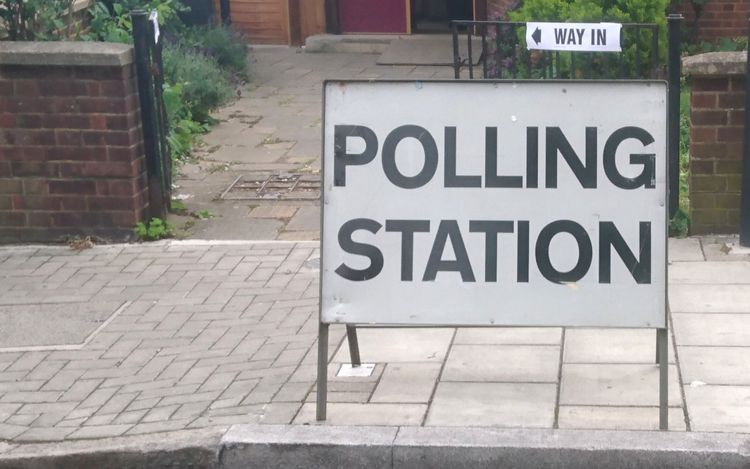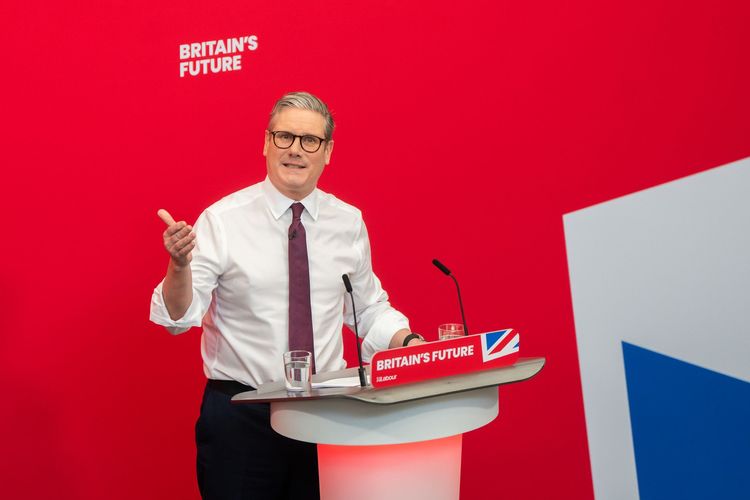Disillusionment grows as the UK sees second-lowest postwar turnout: Our Opinion

‘24
By: Atyeo Thomas du Toit
New polling following the election on July 5th sheds light on the reasons why over 19,000,000 voters stayed at home. From this data, we found significant disillusionment with politics across all non-voter demographics, though the reasons vary substantially across age and gender.
Turnout in the 2024 election slumped to a measly 60%, just 0.6% above the postwar record low. In what many commentators have called a boring election, in part thanks to Labour’s ‘Ming Vase’ strategy and two relatively unpopular leaders, it is clear that disillusionment with politics is rising. Many of those disillusioned voters lent their voice to Reform UK as a protest against the established parties, but more still didn’t engage at all.
We polled those who didn’t vote, asking them to choose reasons from a list that contributed to their abstention. The results revealed the differences between age groups and gender in their views of politics and voting.
10% replied that they were not registered to vote, while 11% claimed the result was a ‘foregone conclusion’. However, digging further into the data, we see a significant gender gap in responses; Men were much more likely to think the election was over before it started, whilst women were half as likely to be registered compared with men.
Generally, men who didn’t vote were more pessimistic about the state of politics, whilst women were less likely to be registered, or planned to vote, but couldn’t due to circumstances. This suggests that women don’t feel as gloomy about politics as men, but didn’t vote more because of practical issues or general apathy.
The gender splits for the top four reasons why people didn’t vote show this trend, with men leading women on negative responses such as disillusionment and parties being the same (thus a lack of trust).
‘Not interested in politics’ sits at 21%, our joint highest reason. There could be hundreds of reasons that contribute to this score, including a lack of adequate political education in schools, or a weak cultural sense of a civic duty to vote.
Whilst political education has improved more recently, 22% of the 40+ cohort are still not interested, and with turnout at its lowest for over 20 years, the UK needs to reflect on the health of its democracy. The breakdown of the unions, perceptions of lying politicians, a disproportionate voting system, poor political education - there needs to be a significant change to encourage people back into a period of high political engagement.
If we take the third highest reason, ‘I think all political parties are the same’, we can see that 40+ who didn’t vote were three times as likely to cite it as a reason than the under 40. This illustrates the distinct nature of disillusionment across different demographics. Although similar numbers (43.7% vs. 56.3%) of under 40 and 40+ were disillusioned to the point of not voting, their reasons for doing so reflected different views on politics.
Similar to the gender split discussed earlier, age splits suggest the 40+ are more likely to have negative feelings towards current politics. Whilst under 40 are less likely to engage with politics in the first place, believing their vote doesn’t matter, being uninterested, or not registering in the first place.
Solutions are therefore complicated - they must address those who engage with politics and reject the offer they are given, and those who actively choose to ignore politics altogether. The latter view was perfectly summed up by a respondent who, when prompted on their reason for not voting, responded ‘why break the habit of a lifetime?’ - suggesting a lifetime of abstention from the political system, and no current reason to engage with it.
The data on those not registered to vote epitomises the lack of serious engagement with politics amongst younger generations. Non-voters under 40 are almost three times as likely to not be registered to vote than those over 40, symbolising their apathetic feeling towards politics, rather than the negative feelings that older generations associate with it.
Labour have pledged to ‘improve voter registration’ in their manifesto, and there is an argument that if it’s easier to register, more people will exercise their democratic right to vote. However, politicians must also wrestle with the reality that those people who don’t register to vote are in a sense the most apathetic of all. Granted, there will be a number of people who didn’t realise they had to register to vote, and might therefore engage in politics as a result of being registered - but many will not increase their engagement simply because it becomes easier to register. Granted, there will be a number of people who will be educated (or informed) via the government's focus on registration.
Previous WeThink Polling has suggested that 56% of Britons think the current electoral system is unfair in the way it allocates seats compared to vote share. Four of the reasons listed had implications for non-voters’ views on the electoral system:
‘I do not think my vote matters’ (16%), ‘I thought the result was a foregone conclusion’ (11%), ‘I already expected my party to win’ (5%), ‘I felt like the party I support could not win my seat’ (5%).
If a proportional system was introduced, the perception of a vote not mattering would fall substantially, and those reasons that speculated on the outcome would be less accurate, as each vote would have a more proportional impact on the outcome of the election. In theory, this would encourage millions of people who stayed at home this time to exercise their voting rights after an almost record-low postwar turnout.
In a nutshell, this parliament faces an issue of low turnout, ranging from apathy to anger, disillusionment to distrust. To overcome these, there must be bold cultural and educational moves to reverse the rise of unregistered young voters, and to convince those 40% who are registered - but didn’t vote - that politicians are not all the same, and that trust can be restored to politics.
A large Labour Party majority is not a panacea for these problems. Solutions can range from instilling a civic duty to vote through cultural efforts, or constitutional change of the voting system - but either way, much work is required to win back apathetic British voters.
‘24
By: Atyeo Thomas du Toit
Sign up for our newsletter
Stay up-to-date with the latest poll results and insights.


